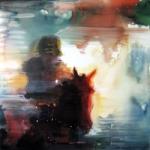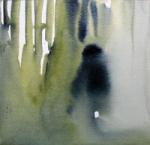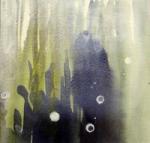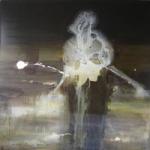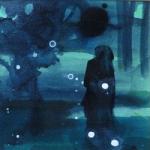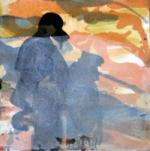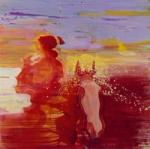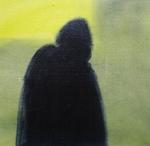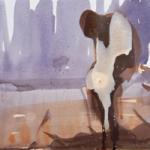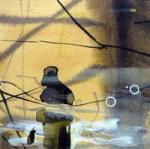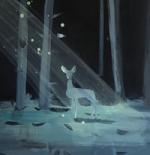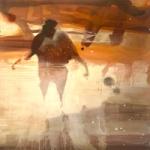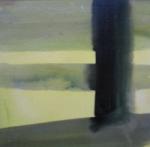These are based on Marvell’s pastoral poems and poems about the English Civil War. Unlike classical pastoral of shepherds and their loves, Marvell writes of a solitary figure contemplating nature in gardens. His poems refer to the Garden of Eden and the Fall, comparing green, innocent nature with flawed, divided humans. My Marvell figure is therefore like a blot on the landscape, a dark, melancholic shape who contrasts with the trees and grass shining all around him. Marvell’s nature is beautiful in its geometry and systems of correspondences (from the cells in the microcosm to the planets in the macrocosm) and is described constantly in terms of exquisite craftsmanship (grass like silk and water like glass). It is also mysterious because, like the descriptions of nature as artifice, the maker seems to have fashioned the world and vanished. Anticipating the Deism of the Enlightenment, God is absent from his orderly creation which yet shimmers with intimations and traces of the divine.
